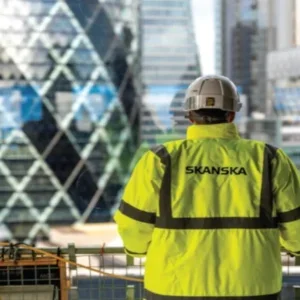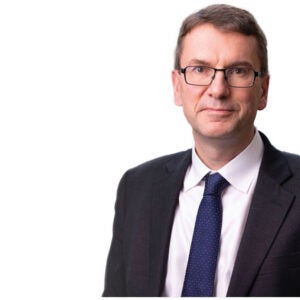
When Rosa Parks refused to give up her seat to a white man on a bus journey back in 1955, she sparked a civil rights movement that swept the US and planted the seeds of change for the years ahead. While Reverend Martin Luther King’s charismatic defiance and oratory brilliance is rightly celebrated, Parks’ contribution to the fight against racial oppression was equally important. It was also proof that it’s not just the loudest people that can have the biggest impact.
As the coronavirus pandemic has engulfed the globe, dramatically altering the way we live in the process, the spotlight has moved from movie stars and reality TV contestants to the ‘everyday’ heroes. These include healthcare workers on the front line, as well as the cleaners, delivery drivers, supermarket staff and farmers that are working hard to keep our lives ticking. Never before have their efforts been so highly prized.
Meanwhile, workers in the hotel industry have been diligently soldiering on despite the adverse conditions of the past 12 months. The continuous cycle of lockdowns instigated by governments around the world has decimated the hospitality trade, leaving many without the numerous employment opportunities offered by the industry before the pandemic hit. Earlier in the year it was reported that 11,000 displaced hospitality and tourism workers in the UK had applied for jobs in the care sector, for example.
“I think that the measures we have taken in the crisis, in terms of cost-effectiveness, will definitely carry over into the future.”
200%
Radisson Hotel Group’s planned expansion of its serviced apartments portfolio within the next five years.
Radisson Hotel Group
Some green shots of optimism remain for the embattled industry, however. Radisson Hotel Group, one of the biggest international hotel brands, plans to more than double its serviced apartments portfolio within the next five years across Europe, the Middle East and Africa (EMEA). With more than 96,000 rooms spanning over 100 countries, the company’s portfolio is one of the largest in the world.
Navigating this vast company through the current crisis and overseeing ambitious plans for growth over the next few years, Sergio Amodeo serves as chief financial officer for Radisson Hotel Group. His teams support the accounting functions, internal audit, treasury and investments, budgeting and forecasting processes, forward-looking analytics, and reporting.
With over two decades of international experience working with leading fast-moving consumer goods companies such as P&G, Groupe Danone and Bolton in four different countries – France, Italy, New Zealand and Spain – Amodeo has led geographically dispersed teams in multicultural environments for more than 15 years. His résumé also includes five years as group CFO for a leading Italian private equity-owned software group with a strong entrepreneurial approach, before he joined Radisson last year.
Room to grow
When faced with a crisis, the most important thing is access to funds: so, during the pandemic, Amodeo’s finance team became a reference point for the entire organisation.
“We have a strong focus on cash. It has been a testing time for the finance team, because of the extra work within the department creating added pressure, the volatility in the market and the increase in reporting required by shareholders,” Amodeo says. “Basically, what we did on a monthly basis, we started to do on a weekly basis – weekly calls with shareholders and continuous talks with banks to benchmark the conditions on European markets with what the shareholders were willing to put on the table.”
Now, Radisson’s expansion plan aims to double the vast portfolio in operation by 2025, recognising the attractive model of either combining both hotel and serviced apartments in one development or as a stand-alone operation. In doing so, the company aims to cater for customers looking for a residential atmosphere when travelling for leisure or business for both short and longer stays.
Serviced apartments represent around 10% of Radisson’s EMEA portfolio, with 45 properties and more than 5,400 units in operation or currently under development.
The company operates these properties as stand-alone or mixed-use developments in combination with a traditional hotel operation. Serviced apartments are being developed as an extension of its existing brand portfolio to cater to a range of different segments, from mid-scale to luxury.
Although the crisis has been tough for the industry as a whole, Amodeo believes Radisson will emerge in a stronger position. “The crisis taught us how to, first of all, make savings,” he explains. “We are doing what we used to do before with fewer people. We also managed to reduce costs by making competitive savings and applying for subsidies.
“I think that the measures we have taken in the crisis, in terms of cost-effectiveness, will definitely carry over into the future. We will be more efficient not only in terms of organising meetings and leveraging digitalisation in meetings, but also in terms of policy,” he adds.
Finance is much more integrated into every aspect of the company than it was 20 or 30 years ago. The different parts of the business – including marketing, operations, legal, technical, development and PR – primarily worked in isolation in the past. Today, however, there is cohesion between departments and the finance team is involved in all of these work streams.
Digital revolution
This collaborative approach is more important than ever in terms of adopting new technologies, which Amodeo has a major role to play in supporting throughout the company. In 2019 the group launched its new multi-brand, mobile-first global website, which also serves as a unique platform for Radisson Rewards members. Complementing this revamped website is the Radisson Hotels app, which launched in July 2019 and offers a personalised experience for members of the company’s loyalty scheme. Radisson’s growing online presence brings it another step closer to becoming one of the industry’s digital leaders.
Meanwhile, the group has rolled out chatbot features and is utilising artificial intelligence, in a bid to accelerate its digital offering. “We are investing in a lot of new technologies,” says Amodeo. “So, we are creating a global platform that covers all our hotels for central reservation system and NPMS property management reservations. This platform is 100% interfaced with our enterprise resource planning.”
The group has also integrated digital menus, express check in and a host of other innovative features. “These are all the initiatives that are being put in place as we speak,” he continues. “I think we’re quite lucky to have strong support from our shareholders,” Amodeo points out. “They require us to make the maximum amount of cost savings and to be as efficient as possible, but they are not reluctant to keep investing in strategic projects.”
Although the hotel industry has dramatically changed in recent years amid such digital upheaval, the CFO role has also transformed to keep pace. For example, as businesses increasingly integrate digital innovations into their organisation, back office departments have often been downsized. Additionally, accounting standards have become more complex over recent decades, particularly driven by cases of corruption and fraud such as the Enron scandal in 2001.
Stronger together
In light of these developments, Amodeo’s department has been busy laying the groundwork for a variety of new initiatives launched by the group. Earlier this year it launched Radisson Individuals, which offers independent hotels and smaller local or regional chains the opportunity to be part of the global Radisson Hotel Group platform. In doing so, these hotels benefit from the company’s international awareness and expertise, but still have the freedom to maintain their own uniqueness and identity.

“This is an example of the type of initiative that shows we are thinking outside the box and exploiting new trends,” Amodeo says. “We are also capitalising on the success of some of our core brands such as Radisson Blu and Radisson RED.”
These initiatives benefit from the contracting power and economies of scale that come from a brand that is trusted by millions of guests across the globe, as well as from its integrated IT and revenue platforms and comprehensive operational systems. Hotels wishing to join Radisson Individuals must undertake a compliance assessment focusing on four key parameters: SGS health and safety compliance; an online index evaluated through their global reporting initiative standards; compliance with fire and life safety; and the ability to connect to Radisson’s main operating systems. Member hotels will also receive training on the group’s ‘Yes I Can’ service philosophy, ensuring that all guests receive high-quality service.
A number of hotels have already joined Radisson Individuals in the UK and Asia, with additional properties currently in advanced discussions in Italy, Germany, Russia and beyond as the company looks to rebuild stronger.
“You just don’t look at the very short term,” concludes Amodeo. “You look at the longer horizon. So, if 2020 is so bad, that’s okay – we will have to reduce costs and find extra cash, but at the end of the day, we will keep investing in the future.”
100
Countries that Radisson Hotel Group currently operates in.
Radisson Hotel Group






